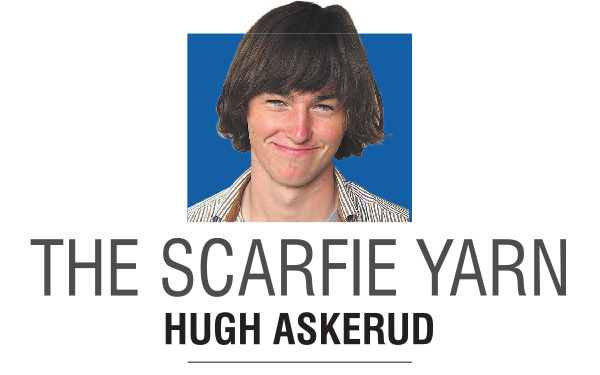
The document raised the issue of the OUSA Aquatic Centre, arguing that it ought to be used as a cafe — all those in favour, say aye.
Currently, the centre is one of the OUSA’s largest assets, yet most of the time it sits dormant, festooned at the entrance to the harbour cycleway.

A money-making machine sure, and a potential way to inspire some community verve. But I would reason that the few using such a space would not be students.
No, instead I believe the building should be consolidated as a multi-space musical arena, a cultural hub for the Dunedin Sound as it were.
Picture this: practice rooms downstairs, a hectic small-to-mid-sized venue above and, somewhere in between, a museum-esque tour showcasing the city’s musical heritage.
Poised poetically on the bridge between Studentville and Port Chalmers, the building has the potential to become a key cog in the next stages of the Dunedin Sound’s journey.
Eat your heart out "Save Dunedin Live Music".
To see why this is such a banger of an idea, it’s first important to understand why we’re in this pickle.
The Aquatic Centre, completed in 2002, was built after the student rowing association made a submission to the OUSA before subsequently flooding the organisation’s annual meeting to ensure that the submission squeaked through.
Concerned that the annual meeting was rigged, the OUSA then held a referendum which the rowing club also publicly rallied to have passed.
Though the current university rowing club had been destroyed, the project constituted a significant stripping of exec power in the face of a club able to easily take advantage of the slim barriers put in place to protect for that sort of thing.
This isn’t to say that the rowing club doesn’t have a right to use the building — it should do. But the potential for the building as a tool for community empowerment extends far beyond its original purpose.
Let’s look at the options.
Firstly, the most salient use of the upstairs portion of the building would be as a venue. The Sophia Crestani inquest this week has reminded us how crucially important spaces for students to gather are in the context of major flat parties.
People aren’t going to stop having large flat parties by themselves — students want to see their friends and build ties with their community. Instead, we must think creatively to understand how these connections can be made in more controlled environments.
The upstairs of the Aquatic Centre, with only minor conversions (there’s already a bar) could fulfil this role.
Poised just a hop, skip and a jump away from Studentville, it would be bound to receive the mass approval from the student community which a place like Errick’s has been unable to do.
Also convenient is the fact that there won’t be any noise complaints.
Secondly, let’s argue, for the sake of it, that some of the centre’s changing rooms be converted into band-practice rooms. With the closure of Spaceland, an area for bands to rehearse in the centre city, options have become limited for aspiring musos to practice their craft.
The OUSA used to provide places for practice in its Clubs and Socs building before this too became unrealistic for the sake of other building patrons.
Without practice spaces, it becomes increasingly difficult for Dunedin’s live-music scene to flourish, as bands are forced into dingy little basements with shoddy equipment.
The opening of these practice spaces would also reduce some of the cost barriers associated with entering the arts.
Just as you can book out a room at OUSA Clubs and Socs, students would have the ability to book out practice rooms and inspire another generational wave of the ever-evolving Dunedin Sound.
This brings us to my last point, which is that the Dunedin Sound needs a material space in order to tie the culture down.
Just look at how successful the Flying Nun exhibition was at the Hocken in 2021-22.
The artists of bygone deserve a place where they can look at their past achievements in reverie, and others in the city deserve a place to appreciate one of Dunedin’s great cultural accomplishments.
The symbolism of placing this cultural haven on the border of Port Chalmers, and Studentville, two crucial geographical spaces which led to the development of this sound, is poignant.
And let’s be realistic — you’re more likely to get the Dunedin City Council on board, and other groups to potentially fund the refurbishment with this Dunedin Sound tie-in.
Highly unrealistic? Probably.
A bloody good idea? I reckon. Let’s make it happen, OUSA.
Return to your glory days with a landmark decision which would bring life to the music scene here in Dunedin, and most importantly, bring a whole lot of good to the students you act on behalf of.
- Hugh Askerud is a 20-year-old local and student at the University of Otago, majoring in politics and religious studies.













